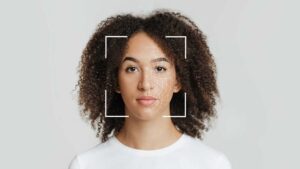


Meta has published a statement in support of proposals to establish a common Digital Majority Age across EU member states, “whereby parents need to approve their younger teens’ access to digital services, including social media.”
It lists three guiding principles. First, an approach that centers parent approval of app downloads for users under 16. “Regulation should empower this, underpinning their ability to make decisions for their family,” Meta says, arguing that “there’s growing support for this approach in and outside of Europe.”
Second, consistency across the industry: “any new provisions should apply broadly across the digital services teens use – not just to social media platforms.”
Finally, addressing age verification. “Robust age verification mechanisms are critical,” Mets says. “We have and continue to be supportive of solutions that reduce the burden on parents: they should be easy-to-use, privacy-preserving and work consistently across industry. That’s why we have been supportive of an EU-wide solution at the app store or operating system level.”
The statement, then, is the Silicon Valley giant’s latest attempt to push back against laws that place the responsibility for implementing age assurance on social sites. “To be clear,” it says, “our support for an EU-wide Digital Majority Age is not an endorsement of government mandated social media bans. Bans take away parental authority, focus narrowly on one type of online service among the nearly two million apps available to teens, and overlook how teens use social media to connect with the world around them, grow and learn.”
Certain phrases could be interpreted as Meta ceding a small patch of ground in its tug-of-war with global online safety regulations; it insists that “what is most important is that this is a simple, privacy-protective mechanism that offers a consistent experience to parents across the EU.”
However, it is also a sales pitch for its new Teen Accounts feature.
“Teen Accounts have built-in protections which limit who can contact a teen and the content they see,” it says. “They set time reminders prompting teens to take breaks from our apps and turn off notifications at night to support a good night’s sleep. And with supervision parents can set individual time limits, e.g. no Instagram during dinner or school hours.”
Meta says millions of teens across Europe are placed automatically into teen accounts that rely on parental consent. And in the end, this is the crux of its argument: what kids do is their parents’ problem. The all-seeing gaze of Mark Zuckerbeg has tilted toward parents, and with it goes the company’s gently coddling narrative. “Parents,” it says, “want to feel confident that their teens can use social media safely, and deserve tools to guide those experiences, not bans that bypass their input.”
The core message from Meta continues to hit the same note: if there’s going to be regulation on who can use its platform, the company does not want to be responsible for enforcing it. Like Meta’s loopy twist of a logo, the firm appears willing to twist its argument into a pretzel knot rather than deviate from that course.
Instagram has too much sex and violence for Brazilians under 16
To Meta’s suggestion that Teen Accounts are the answer, Brazil has a regulatory rebuke. The country has raised the minimum age for Instagram users from 14 to 16. According to the Rio Times, the government came to its decision after determining that Instagram frequently “exposes users to scenes of sex, nudity, violence, and drug use.”
“Officials identified content categories that included intentional death, mutilation, cruelty, nudity, eroticization, intense sexual relations, complex sexual situations, explicit sex, and illicit drug use.”
Instagram has responded by pointing to its Teen Account feature, which offers extra safeguards. But Brazilian leaders have clarified that it “does not consider these platform-specific protections.”
The decision is framed as one that could set a precedent for other countries, in that it forces platforms to focus on the content they provide, rather than their own safety measures. Brazil is the fight-largest market for social media in the world.
The new age limit will appear next to Instagram’s listing in app stores.
NetChoice not worried about SCOTUS ruling on porn law
There are seismic changes happening in the world of age assurance, perhaps none moreso than the U.S. Supreme Court decision in Paxton v. Free Speech Coalition, which upheld the state’s right to impose age verification requirements on porn sites through its law HB 1181. The opinion is expected to have repercussions on states’ laws across the country.
However, social media lobby group NetChoice has met it with a shrug. Quoted in MLex, the industry association representing Meta, X, Google, Amazon and various tech underlings says the decision is “narrow enough not to impact challenges to wider-ranging laws.”
Chris Marchese, director of the NetChoice Litigation Center, argues that “the Court upheld ID checks for porn sites, which disseminate content already unlawful for minors. By contrast, NetChoice’s lawsuits are about protecting access to speech that is lawful for all Americans — including political speech, news, and educational content. NetChoice is confident that we will continue to win.”
The group’s bravado is backed up by recent wins in Arkansas and Ohio, where judges granted it permanent injunctions against age assurance laws for social media. Having brought about 20 lawsuits across the country, it seems to be capable of dowsing where the law is most robust and exploiting the American taste for loving freedom above all. MLex notes that “the U.S. Supreme Court has had a long history of applying strict scrutiny to laws seeking to regulate access to certain types of speech.”
X

La rete biometrica di frontiera del CBP e lo Stato corporativo che vi sta dietro
Il Dipartimento delle dogane e della protezione delle frontiere degli Stati Uniti (CBP) è in procinto di ripubblicare un'ampia revisione normativa che introdurrà una nuova sorveglianza biometrica a livello nazionale.

La polizia di New Orleans cerca di ampliare i poteri di riconoscimento facciale tra le proteste per la privacy
La polizia di New Orleans cerca di ampliare i poteri di riconoscimento facciale tra le proteste per la privacy.

Oloid espande il mercato con la partnership di Armatura e ottiene la certificazione DEA
Il fornitore di autenticazione facciale Oloid ha annunciato una partnership strategica go-to-market con l'azienda di controllo degli accessi biometrici e gestione delle identità Armatura. Ha inoltre confermato la certificazione
© 2025. Tutti i diritti riservati.











